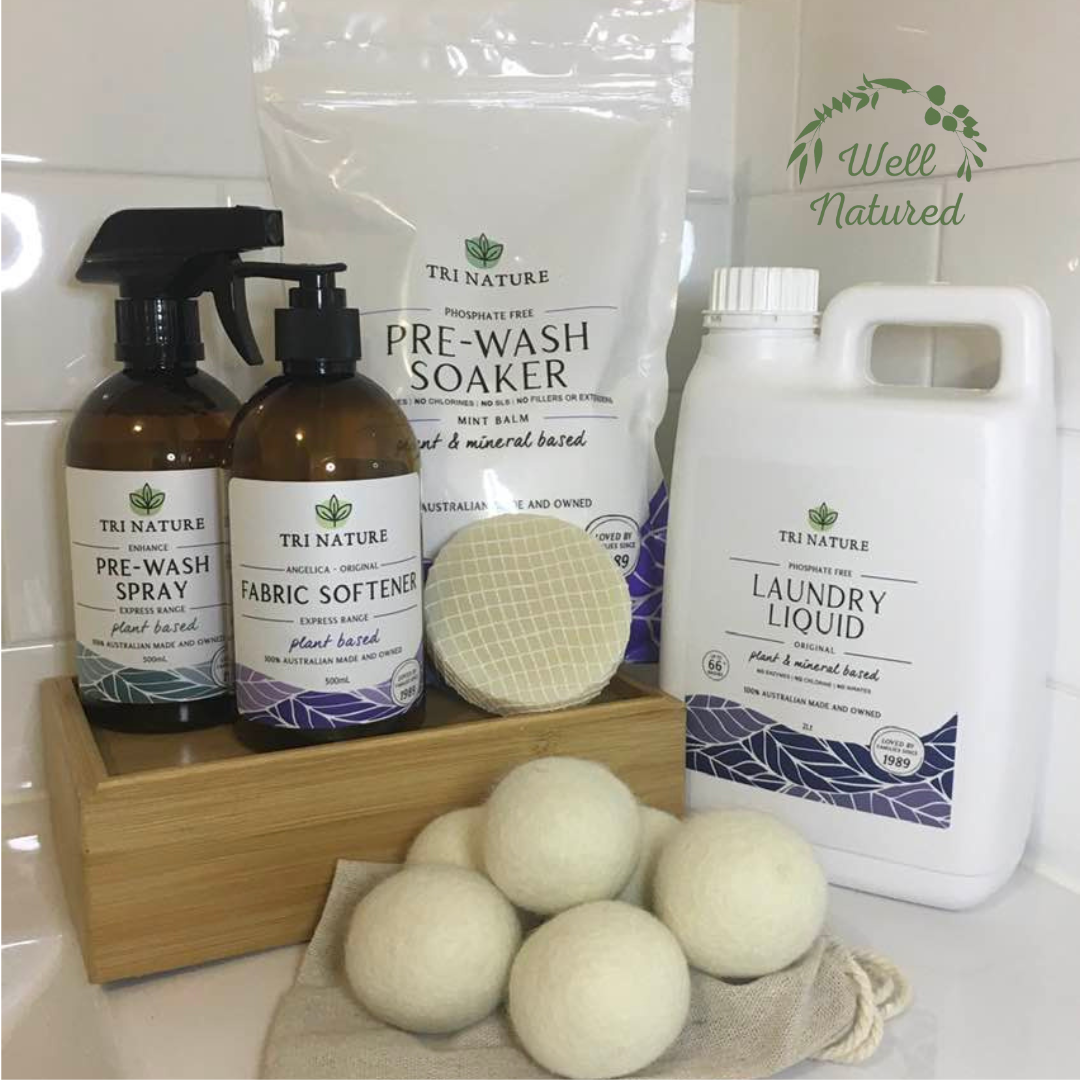A lot of people wash with cold water because it’s just how they were taught to do the washing years ago. Whilst washing with cold water is the most beneficial for the planet in terms of energy efficiency, it may not be the best for washing all types of clothes.
Understanding the benefits and disadvantages of different water temperatures, will help to elevate your wash results.
What temperature is cold, warm and hot water?
Cold water is usually around 20 °C, warm water is usually around 40 °C and hot water is above 60 °C. This may vary slightly depending on where you live, the time of year and your washing machine.
Care Instructions
The easiest way to find out what the recommended temperature for washing your clothing is to check the care label on each garment.

The care label will show a wash tub with a number. The number indicates the maximum temperature at which you should wash your garment (Note: this is the maximum and using cooler temperatures is acceptable).
Hot Water (60+°C)
Benefits
Hot water is extremely effective at removing dirt and oil from heavily soiled fabrics and has the potential to kill germs. For heavily soiled clothing soaking with a Pre-Wash Soaker or using a Pre-Wash Spray is recommended.
Disadvantages
Using a hot water cycle will not only cause your energy bill to increase it also has the potential to fade clothes faster and cause some fabrics to wrinkle or shrink. Hot water is not recommended for certain stains such as blood and sweat as it may set these types of stains.
Cold Water (20°C)
Benefits
Cold water is generally suitable for all colours and it is suitable for delicate fabrics such as lace and silk (that are deemed machine-safe). It is the best option if you are looking to reduce your energy consumption and save money on your electricity bill.
Disadvantages.
Both liquid and powder detergents generally take longer to dissolve in very cold water. This can potentially lead to dull clothes and detergent particles. Cold water may also be less effective at removing greasy and oil-based stains.
Warm Water (40°C)
Benefits
Warm water is generally considered to be the default option for washing as it is effective on commonly soiled fabrics (e.g. cotton, linen, polyester and nylon) and offers a balance between wash performance and energy savings.
When using warm water, if the garments are heavily soiled or stained using a pre-wash soaker or a pre-wash spray is recommended before washing to achieve the best results.
What about shrinkage? While 40 °C might sound quite hot it is unlikely to cause shrinkage of your clothes as it is only just above body temperature and for most fabrics this temperature is suitable for washing.
Disadvantages
Warm water is not recommended for some delicate fabrics and this option is also less energy efficient than a cold wash.
Choosing your laundry products.
Whatever wash temperature you choose, you can be sure that you will get the best results for washing your clothes with any of our range of eco-friendly, phosphate-free laundry products.
Check them all out HERE.

